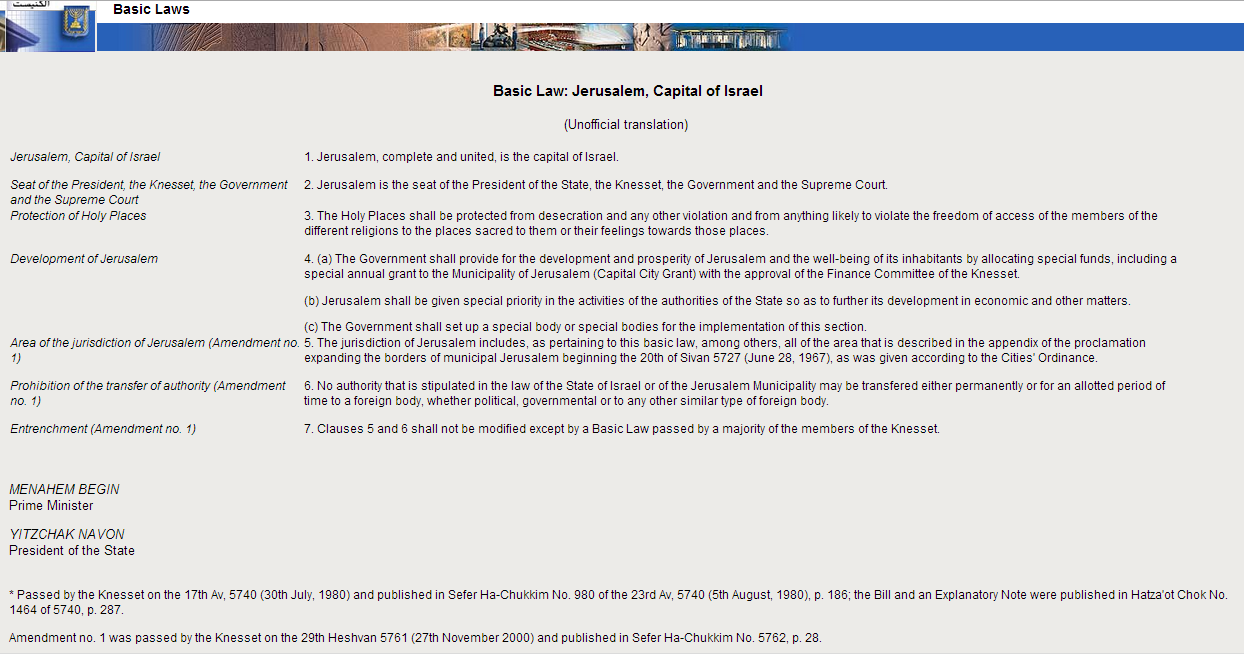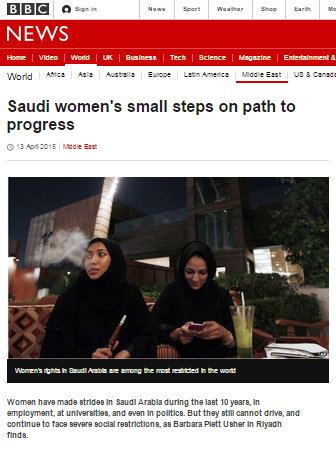Last week we noted that a BBC report from February 5th titled “Israel approves 558 East Jerusalem settlement homes” failed to inform audiences of the fact that some residents of the Jerusalem neighbourhoods which the BBC chooses to define as “Jewish settlements” are Arabs – either with or without Israeli citizenship, according to their own personal choice – and that even so, the advice given to journalists in the BBC style guide stipulates:
“It is normally best to talk about “Jewish settlers” rather than “Israeli settlers”…”
Clearly the BBC is not keen on the idea of audiences losing focus on the message it goes to great lengths to communicate and so it simply disappears away the thousands of Arabs living in neighbourhoods such as Gilo and French Hill.
But that was not the only thing disappeared from that article, which underwent two revisions until it reached the final version as stands on the website today. In the report’s first two versions it was stated:
“Israel captured East Jerusalem from Jordan in the 1967 Middle East war, and formally annexed the area in 1980.”
Some five hours after the article’s initial publication, that sentence was removed.
The Basic Law pertaining to Jerusalem – passed on July 30th 1980 – does not include the terms ‘annexation’ or ‘sovereignty’.
So was that sentence removed because of the inaccurate use of the word “annexed”? Apparently not, because the same claim appeared earlier on in the article’s first two versions and the third and final version still makes the same assertion:
“The units are to be erected on land Israel captured in the 1967 Middle East war and later annexed, a move not recognised internationally.”
What has been removed from the final version of the report is the brief reference to Jordan’s occupation of parts of Jerusalem between 1948 and 1967. Of course accurate and impartial portrayal of that historic event would have had to include information on the fact that Jordan did annex parts of Jerusalem in 1950 and that the move was not recognised by the international community, with the exception of Pakistan. The fact that Jordanian sovereignty over parts of Jerusalem was not internationally recognized of course means that the implications of the sentence “Israel captured East Jerusalem from Jordan in the 1967 Middle East war” are not as they first appear to readers and it would then be necessary to explain what the legal status of the region was before the Jordanian invasion and occupation. 
That, of course would mean having to provide BBC audiences with information on the subject of the territory assigned by the League of Nations to the creation of a Jewish National Home in 1922 – which included Jerusalem.
Of course by now, things are getting complicated and it is much more difficult to promote the political narrative selected by the BBC if one has to take into account that the only relevant legal document in existence with regard to that territory is the one which came out of the San Remo conference.
So instead the BBC elects to begin history in 1967, ignoring what went before just as it ignores those ‘inconvenient’ Arab residents of specific Jerusalem neighbourhoods, so as not to complicate the selected narrative and distract audiences from the chosen focus for their attentions.
Yet again, this practice of pretending that nothing relevant to the subject of Jerusalem happened before June 1967 flies in the face of the BBC’s commitment – as defined in its charter -to “[e]nable individuals to participate in the global debate on significant international issues”.
Related Articles:





